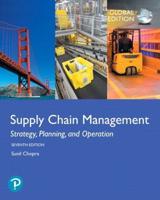Publisher's Synopsis
You're in charge of IT, facilities, or core operations for your organization when a hurricane or a fast-moving wildfire hits. What do you do?
Simple. You follow your business continuity/disaster recovery plan. If you've prepared in advance, your operation or your company can continue to conduct business while competitors stumble and fall. Even if your building goes up in smoke, or the power is out for ten days, or cyber warriors cripple your IT systems, you know you will survive.
But only if you have a plan. You don't have one? Then Disaster Recovery, Crisis Response, and Business Continuity: A Management Desk Reference, which explains the principles of business continuity and disaster recovery in plain English, might be the most important book you'll read in years.
Business continuity is a necessity for all businesses as emerging regulations, best practices, and customer expectations force organizations to develop and put into place business continuity plans, resilience features, incident-management processes, and recovery strategies. In larger organizations, responsibility for business continuity falls to specialist practitioners dedicated to continuity and the related disciplines of crisis management and IT service continuity. In smaller or less mature organizations, it can fall to almost anyone to prepare contingency plans, ensure that the critical infrastructure and systems are protected, and give the organization the greatest chance to survive events that can--and do--bankrupt businesses.
A practical how-to guide, this book explains exactly what you need to do to set up and run a successful business continuity program. Written by an experienced consultant with 25 years industry experience in disaster recovery and business continuity, it contains tools and techniques to make business continuity, crisis management, and IT service continuity much easier. If you need to prepare plans and test and maintain them,then this book is written for you. You will learn:
- How to complete a business impact assessment.
- How to write plans that are easy to implement in a disaster.
- How to test so that you know your plans will work.
- How to make sure that your suppliers won't fail you in a disaster.
- How to meet customer, audit, and regulatory expectations.









